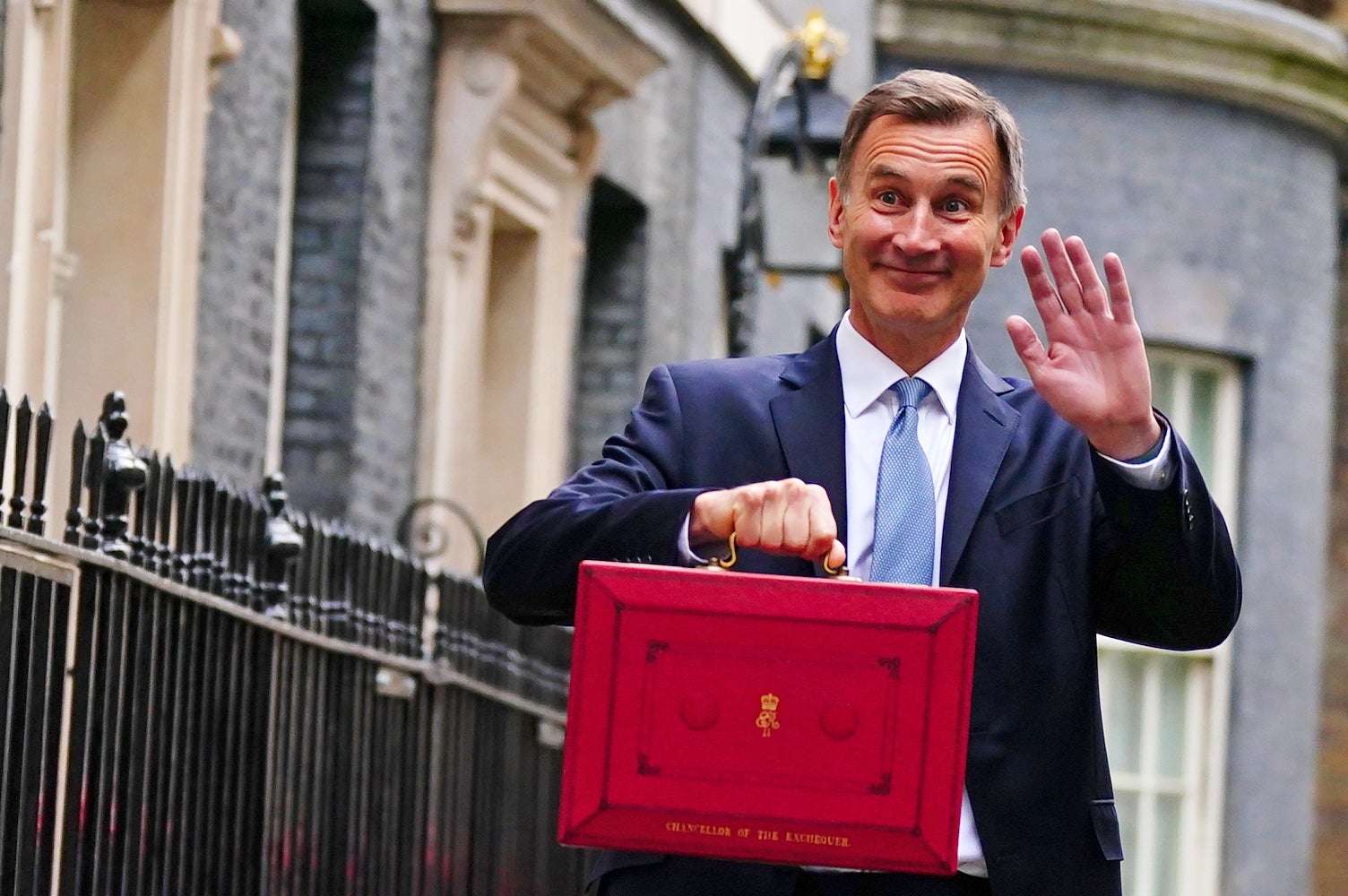Hunt’s non-dom tax ploy is straight out of the George Osborne playbook
Will the current chancellor’s cunning plan spook Keir Starmer and Rachel Reeves, just as his predecessor spooked Gordon Brown in 2007, asks John Rentoul


It is still legal to shoot foxes, provided it is done humanely for pest control, and so Jeremy Hunt is set to shoot Labour’s fox by abolishing non-dom status in next week’s Budget.
This Conservative ploy to scupper Labour has echoes of a similar cunning plan executed by George Osborne, which helped to wreck Gordon Brown’s reputation as prime minister. Brown had just moved into No 10 and was gearing up to call an election to cash in on his “Not flash, just Gordon” honeymoon bounce.
Osborne as shadow chancellor used his speech at Tory conference to propose slashing inheritance tax, a superficially popular policy that shifted the opinion polls and spooked the new prime minister. Brown never fully recovered from “bottling” that election.
Like Osborne’s strike, Hunt’s plan to restrict the tax advantages of non-dom status has destabilised Labour. Rachel Reeves, the shadow chancellor, was relying on the revenue from limiting non-dom status to pay for Labour’s plans to rescue the NHS – so much so that Tory ministers like to claim that she has announced plans to spend the money several times over.
In fact, the puzzle is why the Tories haven’t stolen Labour’s policy already. I remember speaking to Labour policy wonks when Rishi Sunak became prime minister, and they were expecting him and Hunt to do it in their first Budget.
Its advantages to the Tories are obvious. It cuts against their image as the party of the rich, emphasising equal sacrifice from all people at a time of fiscal stringency. It cuts the ground from under Labour’s feet. And it might even raise a borderline non-negligible sum of money in the short run, depending on how many of the global elite it succeeds in driving away from the UK.
But Sunak said no – not least, it was assumed, because of the sensitivity over his wife’s tax affairs. She gave up the tax benefit of her non-dom status after it was revealed by The Independent two years ago, but it would still be awkward to shut down a benefit that she had enjoyed in the past. Sunak has been tetchy about it when Starmer has raised the subject at Prime Minister’s Questions. If he is finally prepared to do it, he would have to admit that Labour were right all along.
Perhaps the electoral need overrides the personal embarrassment. Perhaps the fiscal margins in the Budget calculations are so fine that the chancellor needs an extra £2bn to make the sums add up.
Labour officials say that they have long had contingency plans in case Hunt stole their policy. This is big talk
It is the politics of closing down sources of revenue for a Labour manifesto, however, that would be the main motive for the policy if Sunak decides to go for it. In this respect, the ploy is more like another Tory chancellor’s cunning plan: Norman Lamont’s tax cut for the low paid in the Budget before the 1992 election. At a stroke, he outbid Labour’s shadow budget – instead of raising taxes on the rich, he cut taxes on low to middle incomes. The ploy emphasised that John Major was different from Margaret Thatcher, a One Nation social-justice Tory, while at the same time drawing attention to Labour’s plan to put up taxes on the modestly better-off.
Labour’s defeat at the 1992 election was seared into the party’s consciousness and was one of the driving forces behind the creation of New Labour. Even today, many of those around Starmer are paranoid about the danger that Labour might unexpectedly throw away the imminent general election at the last moment.
Labour officials say that they have long had contingency plans in case Hunt stole their policy – that they have alternative sources of revenue to plug the gap. This is brave talk, because my understanding was that the search for “tax loopholes” was not going well. Unless Reeves can find another one, she is in danger of going into the election campaign with just three sources of revenue to pay for a Labour manifesto that will strain to promise real change: VAT on school fees, a higher windfall tax on oil and gas, and taxing private equity fund gains as income rather than capital.
If Hunt does indeed shoot Labour’s fox on Wednesday, remember that, by convention, the leader of the opposition will respond to the Budget speech. Will Starmer be left with anything to say?
Join our commenting forum
Join thought-provoking conversations, follow other Independent readers and see their replies
Comments
Bookmark popover
Removed from bookmarks